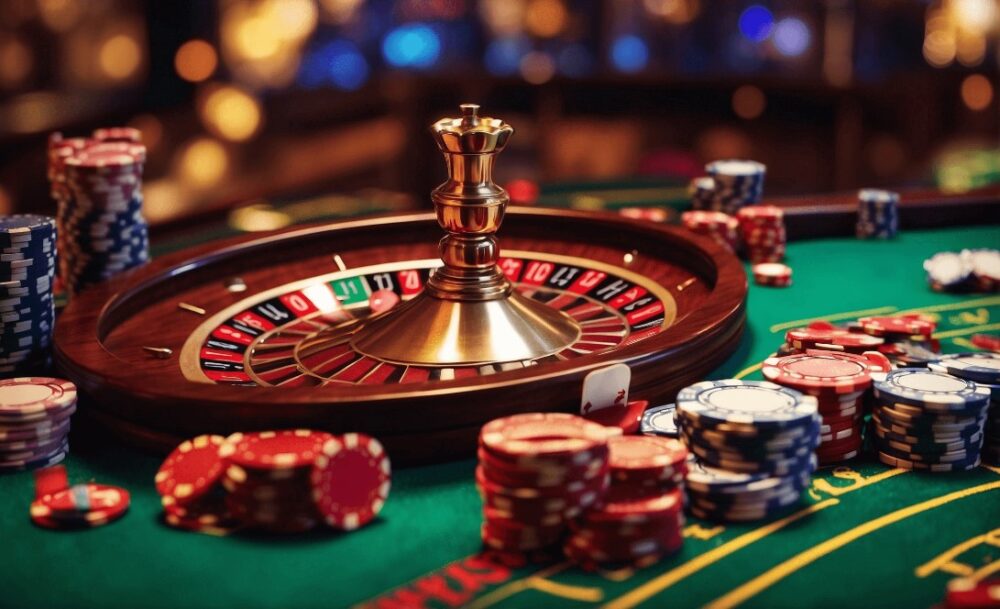
Casino activities have enthralled enthusiasts for centuries, drawing them into a universe of adventure, chance, and fortune. Ga179 From the flashing lights of video slots to the strategic intensity of poker tables, these games offer a special combination of fun and exposure. However, below the facade of this glitz and finesse lies a sophisticated connection of mathematics that influences every result and choice made within the casino.
Understanding this connection between gambling games and math not only enhances the gambling experience but can also help gamblers make knowledgeable decisions. Whether you are a casual player or a avid fan, recognizing the numerical strategies at play can provide important knowledge into chances, ratios, and strategies, eventually influencing how one approaches these chance games.
Arithmetic Probability in Betting
In the world of casino games, mathematical probability plays a critical role in determining outcomes and informing player decisions. Every activity has a distinct set of rules and a particular probability framework that shapes its dynamics. For instance, in activities like roulette, players must grasp the probabilities of choosing a particular digit or shade. The probability of specific occurrences occurring can be computed, and this knowledge can greatly influence wagering strategies.
Players also need to be cognizant of the house advantage, which is the statistical advantage that gambling establishments hold over players in the long term. This advantage varies across various games. In blackjack, skilled players can use tactics to minimize the house edge to as low as one %, while in activities like slot machines, the casino advantage can be substantially larger. Understanding the house edge allows gamblers to make wise decisions about which games to participate in and the amount to wager.
Additionally, probability is fundamental in the principle of danger versus gain in betting. Every bet carries a particular danger level, and gamblers must evaluate the potential return against that danger. Activities like the poker game require players to not only compute the odds of their personal hand winning but also to evaluate the likelihoods of their rivals’ showings. By utilizing statistical principles to their gameplay, players can enhance their odds of winning and engage more strategically in the exciting world of gambling games.
Anticipated Worth in Gambling Games
When discussing gambling activities, one of the fundamental ideas rooted in math is the expected worth. This numerical measure assists gamblers understand the possible results of their bets over a period. In basic terms, expected worth (EV) determines the average amount a player can anticipate to win or suffer per wager if they were to play the activity many times. Each activity has its unique EV, influenced by the odds and the casino advantage, which indicates the benefit that the gambling establishment holds.
For example, consider a game like the roulette game. The expected value can be derived based on the particular wager made. If a player bets on a individual number, the return is 35 to 1, but the actual chances of winning that wager are 1 in 37 (in European the roulette game). This results in a detrimental expected worth, showing that, on the whole, players will incur a loss money over a period when playing this kind of wager. Understanding this idea allows players to make more educated decisions about which games and bets may be more favorable.
Furthermore, the investigation of expected worth can lead to improved money management. Players who understand the math behind their activities are often able to set practical goals. By recognizing their possible losses and profits, they can modify their playing strategies accordingly, which may improve their overall gaming experience. As a consequence, anticipated worth serves as a crucial resource for both beginner and experienced gamblers to navigate the often unpredictable character of gambling games.
Approaches and Odds: The Mathematics Behind Winning
In casino games, understanding the chances is vital for gamblers looking to enhance their likelihood of success. Each activity has its own unique set of chances that dictate winning outcomes, and these numbers are often presented in the rules of the game guidelines or reward charts. For instance, in activities like 21, players can improve their odds through strategies such as card counting, which relies on math principles to gain an upper hand over the house. By acquainting themselves with the odds, players can make more informed decisions on when to place bets and when to give up.
Moreover, the idea of expected outcome has a major part in gambling strategies. Average outcome calculates the average outcome of a stake over a period, allowing participants to assess whether a specific wager is justifiable taking. For example, slot machines have a fixed payback percentage, which can indicate the typical return a player can expect on their wagers. By choosing games with greater expected values, participants can lessen the casino edge, maximizing their future winnings in the long run.
Lastly, successful players often adopt a blend of luck and calculative tactics to improve their gaming experience. While chance is unpredictable, managing a staking plan based on math insights can lead to more positive results. By making use of techniques such as bankroll management and picking games, gamblers can apply math to navigate the random nature of gambling activities, making the most of their efforts and resources at the gaming tables.